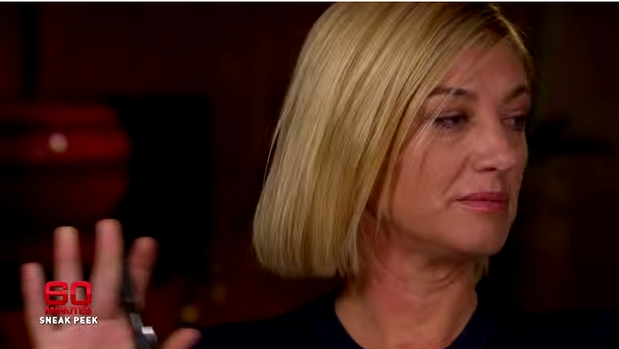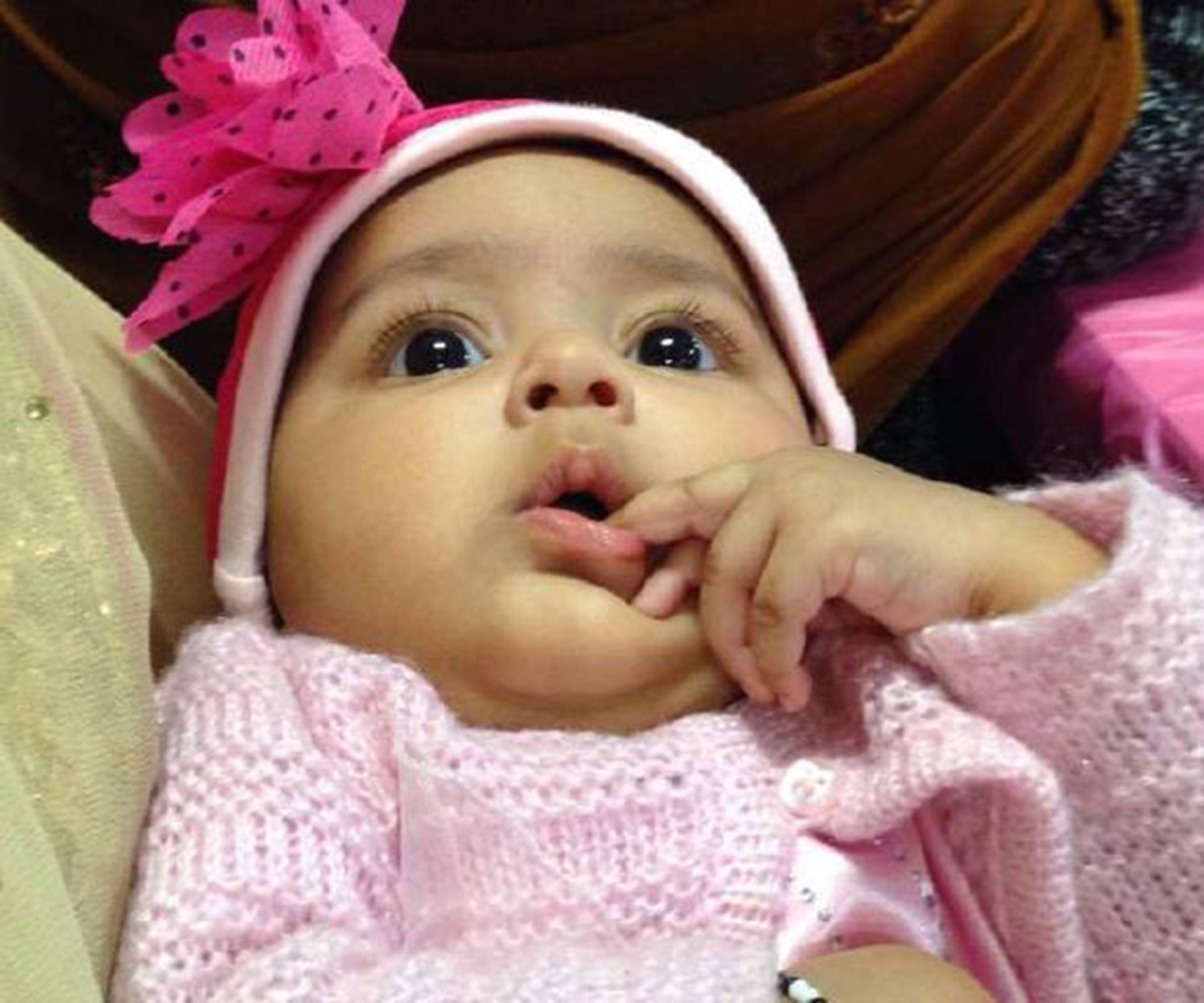Tara Brown and Brisbane mother Sally Faulkner have been brought before a Lebanese judge, handcuffed together as they were led into chambers shortly before midday local time.
Channel Nine reporter Tom Steinfort, who is in Lebanon following the case earlier tweeted: “Proceedings underway at Lebanon Palace of Justice – Tara Brown and Sally Faulkner have just entered the hearing”
Charges of kidnapping, harm and disrespect for authorities have been laid against the pair as well as Brown’s 60 Minutes film crew, three local men and two Britons over botched recovery of Ms Faulkner’s Noah, three, and Lahela, five, who had been living with their father in Beirut.
If found guilty they could face up to 20 years in jail.
After interviewing the group, the judge will determine if the charges will be held up or if bail will be granted pending further inquiry.
More to come…

Last year, The Weekly sat down with the influential reporter to talk about the risks of her work.
The mum-of-two has travelled to the Syrian frontline twice in the past six months to report on female freedom fighters and admits those assignments take on a different complexion when there are two kids waiting at home.
“I don’t ever think I’m gung-ho about it,” she told us at the time. “You stop yourself thinking about the worst consequences because then you wouldn’t do anything.”
In the interview with The Weekly’s Susan Horsburgh, Tara spoke at length about her job’s emotional toll, her kids’ guilt trips and the father she hasn’t spoken to for almost 40 years.
Read the full story below:
In an age when attention-seekers are lionised and self-promotion is an essential life skill, humility is apparently for losers – and yet the 47-year-old 60 Minutes reporter is on a professional high, thanks to old-school qualities like talent, intelligence and a punishing work ethic.
Tara has plugged away on the country’s slickest current affairs program for almost 15 years, but she appears to have taken it up a notch in recent times, nailing a string of big stories in her poised, signature style.
Just in the past year or so, she has covered the capture of notorious paedophile Peter Scully in the Philippines, chronicled the heartbreaking disappearance of Daniel Morcombe and the hunt for his murderer, and grilled the much-maligned ex-mistress of wife killer Gerard Baden-Clay.
In June, it was disgraced “wellness” entrepreneur Belle Gibson, and a clearly fed-up Tara seemed to win more social media plaudits with every withering look she shot the cancer fraud. “Tara calls BS,” typed one tweeter. Another posted a picture with Tara’s face superimposed on Tony Abbott’s body, and the words: “TARA BROWN FOR PM.”
In that interview, Tara was exasperated with Gibson’s doublespeak and she showed it – just like earlier this year when she quizzed wife beater Steve, who claimed his spouse had brought out the worst in him and she called him out for blaming his victim. Moments like those make for compelling television and give viewers a tantalising glimpse of the woman behind the journalist.
The audience, it seems, can sense she’s a good egg and an afternoon in her company would suggest they’ve got it right.
Tara Brown on working at 60 Minutes
Tara Brown is as unassuming as the 60 Minutes HQ – what looks to be a fibro shack under Nine’s old Sydney transmission tower.
At the network’s Willoughby compound, Tara shares an office with reporter Michael Usher at the back of the program’s dilapidated cottage, which hasn’t been refurbished since George Negus and Ian Leslie first walked its halls 36 years ago.
Today, looking model-thin in a fitted jacket and pencil skirt, Tara has just taped the studio intro to her Gibson story, due to air five days later, as well as an interview for the website’s “Extra Minutes”. According to producer Stephen Taylor, she was here working on the script until midnight on Saturday and then back at nine on Sunday morning.
Like most journalists, she would prefer to be the one posing the questions – and, despite fronting 60 Minutes for so long, almost nothing has been written about her.
Still, sitting at her desk, surrounded by a photo of her beautiful boys, six-year-old Jack and four-year-old Tom, and shots on the job with AC/DC and Powderfinger, Tara is warm and accommodating – even if she does spend half the chat torturing a screwed-up tissue in her hands as she talks.
She may seem a picture of calm on screen, but she isn’t completely devoid of neuroses. “Tara frets over interviews,” says 60 Minutes’ Executive Producer, Tom Malone, “because she knows, if the interview doesn’t fly, then the story isn’t going to fly.”
Tara is known for her forensic approach and nowhere was that more evident, says Tom, than in her interview last year with baby Gammy’s father, David Farnell, a convicted child sex offender who abandoned his son with Down syndrome in Thailand with the child’s surrogate mother.
“She got the tone right, and it’s a hard thing to do because you can’t just go in and beat someone up,” says Tom. “You know you’ve got Australia riding on your back, wanting you to ask the tough questions, but you’ve got to do it delicately and in a manner that is as objective as it can be.”
It would be naïve, however, to think that total objectivity is possible. Since becoming a mother, Tara says, she has become more prone to tears and more strident in matters involving the mistreatment of children. “As a journalist, you try to go into these things open-minded, but I think the truth of it is, you still come with a bias,” she says.
In her recent “Baby Bling” story, she met a mother who fake-tanned her toddler and put the child on stage to hip-thrust in a Hooters costume. “As a mother, I probably go into it much more judgmental because I do think it’s a form of child abuse,” she says. “I don’t understand why women would do that to children.”
On growing up
Tara spent her own childhood riding horses and devouring Enid Blyton books. In the early years, she grew up with her two younger brothers on a property outside the small NSW-Queensland border town of Wallangarra, in a house built by her father, a stonemason.
When she was about nine, though, her parents divorced.
“It was a very bitter split,” recalls Tara, “and I haven’t seen him since shortly after that time.”
Tara believes her father is still alive, but hasn’t tried to contact him for almost 40 years.
“[The separation] was abrupt and felt traumatic at the time,” she says. “I will never understand how a parent can choose to have nothing to do with their children, especially after having my own, but it’s a decision my father made and so I’ve always felt it should be his choice to be in touch with me if he ever had a change of heart.”
Asked how she has coped with the loss, Tara replies, “I’m not sure. I just do. I think it’s sad, but it hasn’t been crippling – as much as I can tell. After all, I really don’t have an option but to accept the reality for what it is.”
After the split, Tara moved to Sydney with her mother, who pre-trained racehorses and later married a businessman with two younger children.
Although reluctant to psychoanalyse herself, Tara says her parents’ divorce – “like all experiences” – has shaped her.
“I guess I learned early of the impermanence of things,” she says, “and the fragility of what we might take for granted.”
Close friend Kate Rouse suspects it helped mould Tara into the strong, independent teenager she met in 1987.
The pair “clicked” in their first year at Bathurst’s Charles Sturt University, where Tara was studying for a communications degree. “At a time when everyone is trying to work out who they are, she was just who she was,” recalls Kate, a primary school teacher.
“Just so genuine – never looking over her shoulder to see if there was anyone better to talk to. You felt you could really trust her.”
Kate describes her friend as unflappable, even amid the chaos of two small kids. “If she’s ever flustered or frustrated, I can never tell,” says Kate. “She talks so nicely to the boys, she’s beautiful to them.”
On motherhood
A relative latecomer to motherhood – her boys were born when she was 40 and 42 – Tara has apparently taken to it with gusto, relishing trips to the park, colouring-in sessions and living-room concerts.
Jack and Tom, she says, are “gorgeous boys” – sensitive and determined. “Jack is probably more of a worry wart,” says Tara. “Tom’s a bit more of a free spirit. And they’re both really articulate and happy to tell you what they think.”
Especially when Mum is going away. “They can be quite vocal about not liking the idea … and sometimes that’s really difficult to walk away from,” she says, “but sometimes they don’t raise an eyebrow at all. I bribe them with presents – I’m terrible.”
Tara may have one of the most coveted jobs in Australian journalism, but it takes a brutal toll on family life, demanding at least six months on the road every year, often with no warning.
She might be helping with homework in the kitchen one day and donning a flak jacket in Western Kurdistan the next.
She has travelled to the Syrian frontline twice in the past six months to report on female freedom fighters and admits those assignments take on a different complexion when there are two kids waiting at home.
The risks, though, are calculated. “I don’t ever think I’m gung-ho about it,” she says, “but you stop yourself thinking about the worst consequences because then you wouldn’t do anything.”
Earlier this year, she travelled to the Philippines to cover the manhunt for depraved paedophile-murderer Peter Scully. It was one of the most emotionally wearing stories she has done.
“Our shoot started with the exhumation of a little girl’s body,” says Tara. “Every step of that story was incredibly harrowing. And depressing – just depressing that there was such evil and there were so many people exposed to that.”
At the end of each day, the team talks about their disturbing experiences – sort of like group therapy – but Tara says she has never sought professional help. After each extraordinary work assignment, she just re-enters ordinary suburban life. “They are very different existences, but I can’t tell you how grateful I am for the two kids coming into my bed or my friends who stick by me, despite not hearing from me for a long time,” she says, “because that is real life and it’s not mundane at all. It’s exciting and challenging and busy and guilt-ridden … but I’m very grateful for both.”
Without family support, Tara relies on a nanny and her husband of 15 years, TV producer John McAvoy. “I think he finds it frustrating at times,” says Tara, who limits her work trips to no longer than two weeks. “Life would be much more simple if I had a nine-to-five job, but … to me it’s swings and roundabouts – I do a lot of swimming lessons and birthday party drop-offs when I’m home.”
What she sacrifices most is personal space – some guilt-free time to take a walk, perhaps, or read that neglected Tim Winton or Ian McEwan novel. “A sense of your own person maybe,” says Tara.
The travel actually isn’t such a hardship. “I’m sad to be saying goodbye to my boys and missing things that are important to them, but I’d be dishonest if I said I hated the travel,” she says. “I don’t. I’m still excited by the adventure of this job.” Tara has wanted to be a journalist since she was 14. After university, she did her cadetship at WIN Television in Wollongong and went on to join Nine’s Nightline in 1992. She scored her lucky break that summer, when she filled in on A Current Affair and filed a gotcha story about a union official extorting a builder. “I was very, very lucky,” says Tara, “and that story exposed me to some people around the network.”
She joined ACA in 1993 and graduated to 60 Minutes in January 2001. And then her children arrived at the 11th hour. If you believe Tara, her life has unfolded almost beyond her control. “I was incredibly lucky,” she says. “Maybe, in a way, I’ve been very immature in how I’ve lived my life because it’s been a lot more reactionary than planned. My big plan was to be a journalist. Full stop.”
If she could advise her 16-year-old self, she would tell young Tara not to let self-consciousness hold her back. Although she still considers herself shy, she feels less so as she gets older. “I’ve also learned to push myself,” she says. “When I was 16, there’s no way I would have thought I’d be in this job because I just wasn’t confident enough. So the journey has been terrific … because I have grown into that person.”
It is dark now and Tara is due at another work meeting, yet she takes the time to ricochet from one Nine entrance to the other, trying to find the cab she has called for The Weekly. As she races up and down stairs, leading her visitor through the labyrinth that is the Nine Network, she apologises for not giving a more riveting interview. Of course, there’s no apology necessary.

